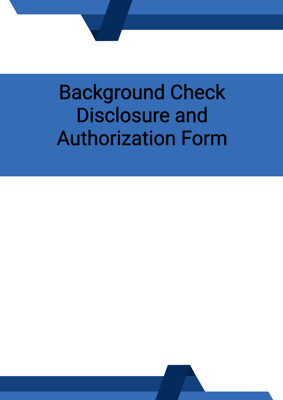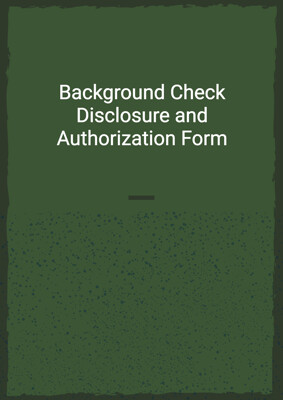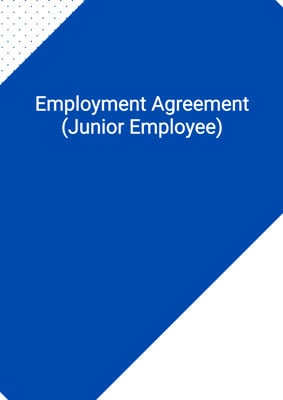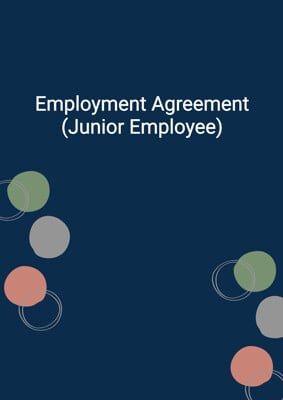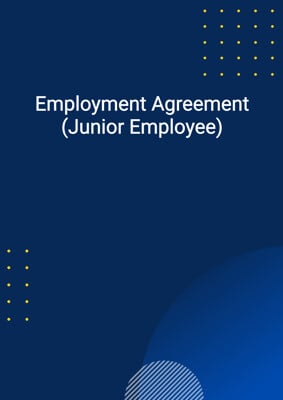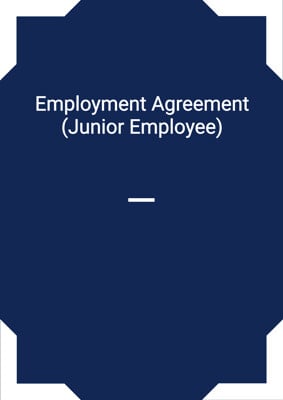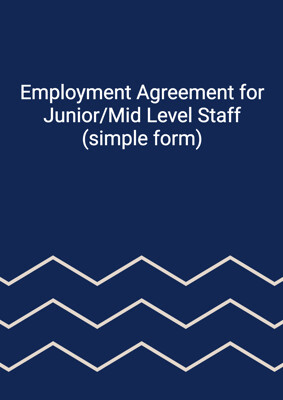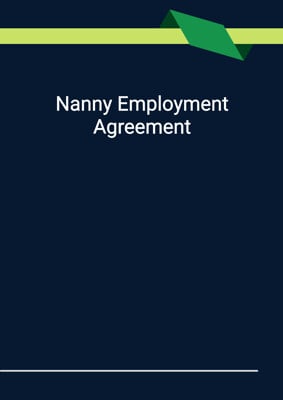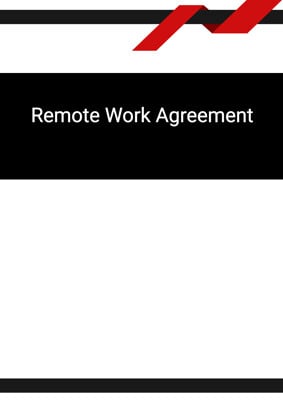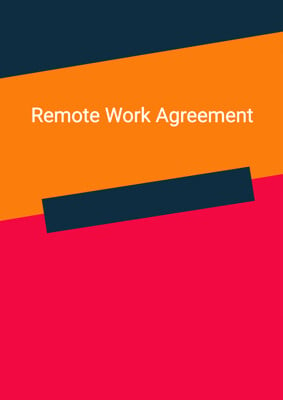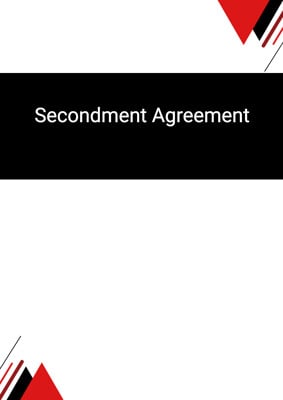How to Tailor the Document for Your Need?
01
Create Document
Fill in the details of the parties. You can click the "Fill with Member’s Information" button to complete it with information saved to your account.
02
Fill Information
Please fill in any additional information by following the step-by-step guide on the left hand side of the preview document and click the "Next" button.
03
Get Document
When you are done, click the "Get Document" button and you can download the document in Word or PDF format.
04
Review Document
Please get all parties to review the document carefully and make any final modifications to ensure that the details are correct before signing the document.
Document Preview
Document Description
The Secondment Agreement is a legal document that outlines the terms and conditions of seconding an employee from one organization (referred to as the 'Employer') to another organization (referred to as the 'Host'). The importance of this document lies in its ability to clearly define the rights, responsibilities, and obligations of both parties involved in the secondment.
The entire document consists of several sections that cover various aspects of the secondment. The first section, 'Secondment Description,' provides a detailed explanation of the employee's role, the duration of the secondment, and the employee's status as an employee of the Employer throughout the secondment period. It also emphasizes that any changes to the secondment period must be agreed upon in writing.
The second section, 'Host's Responsibilities,' outlines the responsibilities of the Host organization, including the management and supervision of the employee, providing a safe working environment, setting performance expectations, and notifying the Employer of any performance management issues or breaches of the secondment terms.
The third section, 'Salary and Benefits,' clarifies that the employee will continue to receive their salary, benefits, and associated costs from the Employer during the secondment period. It also highlights the Employer's obligation to pay employment taxes and report the employee's income to the appropriate tax authorities.
The fourth section, 'Travel,' states that if the employee is required to travel on behalf of the Host, the Host will directly pay for any travel costs in accordance with their travel policies. The Employer and the employee are not responsible for reimbursing these costs.
The fifth section, 'Leave,' explains that the employee is entitled to leaves as per applicable employment laws and the Employer's rules. However, prior approval from both the Host and the Employer is required before taking any leaves during the secondment period.
The sixth section, 'Secondment Fee,' specifies that the Host will pay a fee to the Employer for the services provided by the employee. The fee amount and payment terms are detailed in a separate schedule.
The seventh section, 'Reimbursement,' states that the Host will directly reimburse the employee for any expenses incurred during the secondment. The employee must submit a claim with supporting proof of expenses, such as receipts.
The eighth section, 'Insurance,' highlights the Employer's responsibility to maintain insurances, such as worker's compensation insurance, for any illness or injury sustained by the employee during the secondment.
The ninth section, 'Ownership of Work Product,' states that any intellectual property created by the employee during the secondment will belong to the Host. If the Employer wishes to use any of the intellectual property, prior written approval from the Host is required.
The tenth section, 'Indemnity,' states that the Employer shall indemnify and hold harmless the Host from any claims, losses, suits, or damages arising out of the employee's employment or termination during the secondment period.
The eleventh section, 'Confidentiality,' outlines the employee's access to confidential information of the Host and the Employer's obligation to ensure that the employee does not disclose or use such information without prior written approval.
The twelfth section, 'Termination,' provides the conditions under which either party can terminate the agreement, including bankruptcy, material breach of obligations, or termination of the employee's employment with the Employer.
The thirteenth section, 'Amendment,' states that any variation of the agreement must be in writing and signed by the parties. It also clarifies that a variation does not constitute a general waiver of any provisions and does not affect any rights or obligations already accrued.
The fourteenth section, 'Severability,' states that if any provision of the agreement is deemed illegal, void, or unenforceable, it shall be removed without invalidating the remaining provisions. The parties will negotiate to establish a valid substitute provision if necessary.
The fifteenth section, 'Warranty of Capacity and Power,' includes representations and warranties from each party regarding their authority, power, and capacity to enter into and fulfill their obligations under the agreement.
The sixteenth section, 'Force Majeure,' states that none of the parties shall be liable for any failure or delay in performing their obligations due to causes beyond their reasonable control, entitling them to a reasonable extension of time.
The seventeenth section, 'No Rights Under Contracts for Third Parties,' clarifies that only the parties to the agreement have the right to enforce its terms.
The eighteenth section, 'Arbitration and Proper Law,' encourages the parties to resolve any disputes amicably and in good faith. It also includes a jurisdiction clause.
The nineteenth section, 'Notices and Service,' specifies the methods and timings of serving notices between the parties. It also provides the addresses and contact details for each party.
The twentieth section, 'Counterparts,' allows the agreement to be executed in multiple counterparts, with each counterpart considered an original but together constituting one instrument.
How to use this document?
To effectively use the Secondment Agreement, follow these steps:
1. Review and understand the entire agreement, paying close attention to each section and its implications.
2. Gather all necessary information, including the names and addresses of the Employer and the Host, as well as the employee's details.
3. Customize the agreement by replacing the placeholders with the actual information of the parties involved.
4. Clearly define the secondment period, including the start and end dates, ensuring that both parties agree on the duration.
5. Specify the employee's position and responsibilities during the secondment, ensuring that they align with the Host's requirements.
6. Discuss and agree upon the salary, benefits, and associated costs that the Employer will continue to provide to the employee during the secondment.
7. Determine the travel requirements, if any, and clarify whether the Host or the Employer will bear the associated costs.
8. Understand the leave entitlements of the employee and establish a process for obtaining prior approval from both the Host and the Employer.
9. Agree upon the secondment fee that the Host will pay to the Employer for the services provided by the employee, and ensure that the payment terms are clearly defined.
10. Establish a process for the reimbursement of expenses incurred by the employee during the secondment, including the submission of claims with supporting documents.
11. Discuss and confirm the insurance coverage for the employee, particularly regarding worker's compensation, to ensure their protection during the secondment.
12. Understand the ownership rights of any intellectual property created by the employee during the secondment and seek prior written approval from the Host before using such intellectual property.
13. Be aware of the indemnity clause and the Employer's responsibility to indemnify the Host from any claims or damages arising from the employee's employment or termination.
14. Emphasize the importance of maintaining confidentiality regarding the Host's confidential information and ensure that the employee understands their obligations in this regard.
15. Familiarize yourself with the termination conditions and the process for giving notice in case either party wishes to terminate the agreement.
16. If necessary, seek legal advice or consult with relevant stakeholders to ensure compliance with applicable laws and regulations.
17. Keep a record of all communications, approvals, and any changes made to the agreement for future reference.
By following these steps, you can effectively utilize the Secondment Agreement and ensure a smooth secondment process while protecting the rights and interests of all parties involved.
Not the right document?
Don’t worry, we have thousands of documents for you to choose from:

